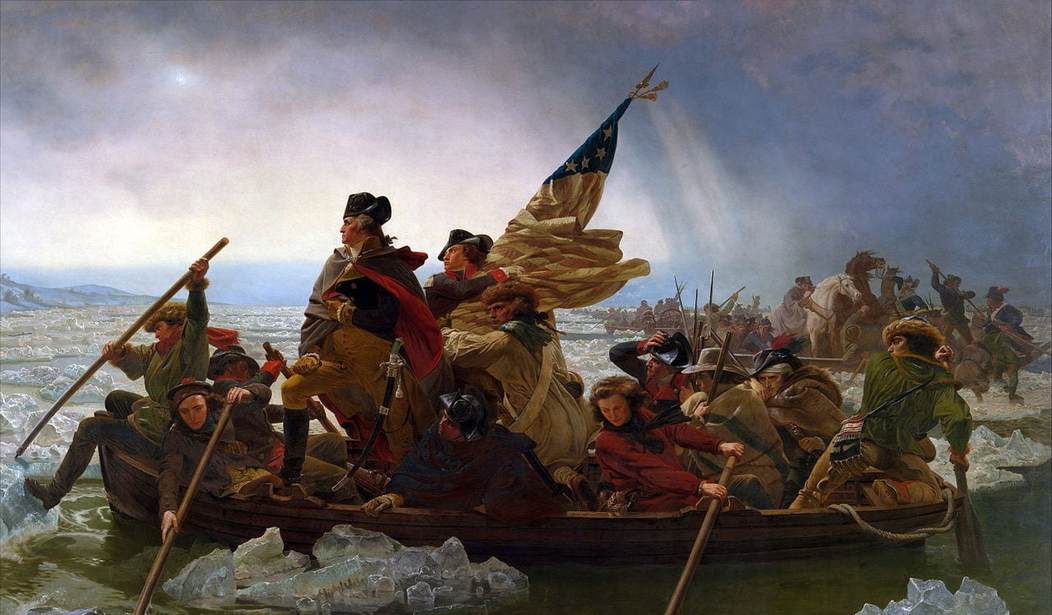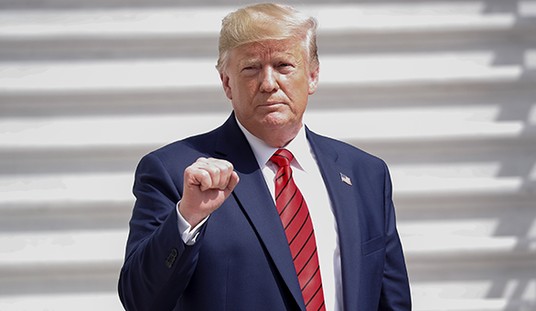On Sunday, one of presumptive Democratic nominee Joe Biden’s potential running mates, Sen. Tammy Duckworth (D-Ill.), said she was open to the idea of removing statues of George Washington, the father of our country. To his credit, Biden has said he supports the government protecting such statues. Meanwhile, the Democratic National Committee (DNC) tweeted and deleted a message condemning a Fourth of July celebration at Mount Rushmore as “glorifying white supremacy.”
Duckworth’s ambivalence to the founder of our country is extremely disturbing, perhaps even disqualifying. The vandalism against statues of George Washington should unite Americans regardless of party. Removing any monument to this great man should be a third-rail issue in American politics.
Without George Washington, there would be no United States of America. The Revolutionary War was a close-won thing and Washington’s leadership held the rag-tag Continental Army together through a devastating winter that should have doomed the effort. Although he was not a brilliant tactician, George Washington personally led soldiers into combat, risking life and limb. He led with fortitude and humility, inspiring the troops to fight in a cause that seemed hopeless.
Yet George Washington’s noblest act was the voluntary surrender of power. Without the humility of this great man, America could have become a dictatorship or a monarchy. Instead, George Washington established a republic by refusing to grasp the power that easily could have been his.
This humility made George Washington a world-historical hero. A painting in the U.S. Capitol commemorates the moment when Washington handed in his military commission, becoming a civilian in his role as the first president. He declined to run for re-election after two terms, setting a precedent followed by every president except Franklin Delano Roosevelt.
Yet his greatest moment arguably came on March 15, 1783. More than a year after British General Lord Cornwallis surrendered at Yorktown, the Continental Army had not been paid for its service. Rightly angry, the troops hatched a scheme to overrun Congress and install Washington as king of what would become the United States. Washington put them to shame. He urged the army to trust the people’s elected representatives, rather than opening the “floodgates of civil discontent.”
He reportedly pulled out a letter to read the troops but needed his eyeglasses to see the text. “Gentlemen, you must pardon me. I have grown gray in your service and now find myself growing blind,” the imposing commander declared. Many officers wept, and the mutiny was over. Washington’s letters to Congress won his officers five years of full pay for their service.
King George III may have delivered the most fitting tribute to George Washington. According to American painter Benjamin West, the king said that Washington’s resignation of power made the American president the greatest character of the age. West said George III said “that act closing and finishing what had gone before and viewed in connection with it, place him in a light the most distinguished of any man living, and that he thought him the greatest character of the age.”
The voluntary surrender of power may seem a noble thing in the abstract, but most political leaders have a hard time relinquishing control. President Woodrow Wilson would have run for a third term if his party had let him, and Franklin Delano Roosevelt notoriously served four terms in office, the longest term of any president. Had either of them faced the opportunity to become king at the head of a mighty army, it seems likely they would have taken it. Who wouldn’t? President Donald Trump will almost certainly step down after a second term (should he win re-election this year), but he toys with the idea of yard signs reading “Trump 2024,” “Trump 2028,” “Trump 2032,” and so on.
Only the most principled of men or women would be able to turn down power like that, especially when there was no precedent for turning it down. George Washington’s resignation set the stage for the peaceful transition of power in the United States of America, and every American statesman should honor and follow that example.
Washington was not perfect. He did own slaves, after all. However, he and the other founders saw slavery as doomed to extinction, and hoped to help it along that path by banning the expansion of slavery into the territories and by banning the slave trade. George Washington’s ownership of slaves is a black mark on his record, but it was not nearly as remarkable as his political leadership and his willingness to step down from political control.
Voters should be extremely suspicious of any politician who refuses to honor George Washington, especially if that politician is open to or supportive of removing statues of the father of our country. Washington’s defining trait was exercising noble leadership and voluntarily surrendering political control. Any true statesman or stateswoman should look to him for inspiration, and loudly condemn those who would tear down his monuments.
Tyler O’Neil is the author of Making Hate Pay: The Corruption of the Southern Poverty Law Center. Follow him on Twitter at @Tyler2ONeil.









